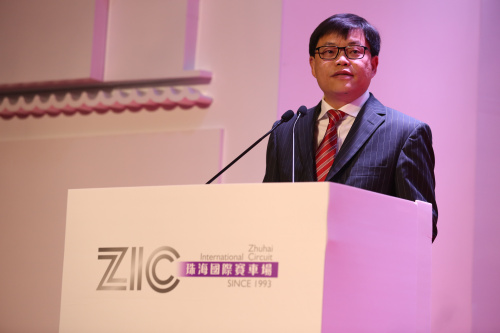(Singapore, 12.06.2025) Huang Xin (黄鑫), former Party Secretary and Chairman of Zhuhai Jiuzhou Holdings Group(珠海控股投资集团有限公司), is under investigation for suspected severe violations of discipline and law, authorities announced on June 11. The probe, led by the city’s disciplinary inspection and supervisory commission, uncovers a troubling pattern of corruption stretching across multiple state-owned enterprises (SOEs) and critical public sectors during his decades-long career.
Before taking the helm at Jiuzhou Holdings in 2020, Huang had held influential positions across Zhuhai’s disciplinary and state-asset oversight systems since entering public service in 1990. While serving as head of the city’s discipline inspection office in the mid-2000s, he was already allegedly soliciting bribes disguised as “coordination fees.”
After transferring to the State-owned Assets Supervision and Administration Commission (SASAC), insiders claimed he turned the asset regulation system into a personal cash source. In one case, a local enterprise was pressured to deliver a BMW 3 Series to Huang in 2009 to secure post-reform operational control.
His move to lead Zhuhai Water Group in 2015 gave him access to the city’s essential infrastructure projects. Contractors were reportedly forced to pay a 15% “service fee” to Huang’s associates or face indefinite payment delays. Even worse, nearly 80% of pipeline renovation contracts—worth 230 million yuan—were awarded without public bidding to a company run by Huang’s cousin, violating basic procurement regulations and endangering the integrity of public services.
Despite a polished image built on his credentials as an economics PhD, Huang’s tenure at Jiuzhou Holdings was marked by financial manipulation and nepotism. Internal whistleblowers revealed that hotel supply procurement was funneled to a company operated by his brother-in-law, with prices inflated by as much as 30%, even for basic items like disposable slippers.
In 2022, shortly before Jiuzhou Holdings competed in the “Top 20 Chinese Tourism Groups” ranking, Huang allegedly ordered financial teams to inflate the company’s revenue figures by 4.7 billion yuan in an effort to boost its national standing. Meanwhile, the group’s debt mounted and its reputation plummeted, calling into question the credibility of Zhuhai’s public asset management.

Under Huang’s direction, Jiuzhou Holdings also launched ambitious high-profile projects, which, while publicly celebrated, are now viewed through a more skeptical lens.
One such initiative was a 2.2 billion yuan investment to develop Sanjiao Island in the Wanshan Archipelago into Guangdong’s first “public welfare + tourism” island resort. The project, promoted as a model for sustainable tourism, took years to complete.
Simultaneously, the company collaborated with the Chinese Yachting Association to host national and international sailing competitions, including the Clipper Round the World Yacht Race, the Asian Windsurfing Championships, and the National Sailing Championships—all as part of an aggressive push to brand Zhuhai as a sailing capital.
However, many now question whether such projects were truly intended to serve the public or merely served as platforms for financial manipulation and personal gain. As allegations of fabricated data, inflated budgets, and preferential contracting surface, even well-publicized tourism investments are being re-examined.
The full extent of the fallout is still unfolding. But for many in Zhuhai, the Huang Xin scandal marks not only a personal downfall, but also a moment of reckoning for the city’s broader approach to managing public assets.
By Intern Journalist: Jie Ying Tan





































